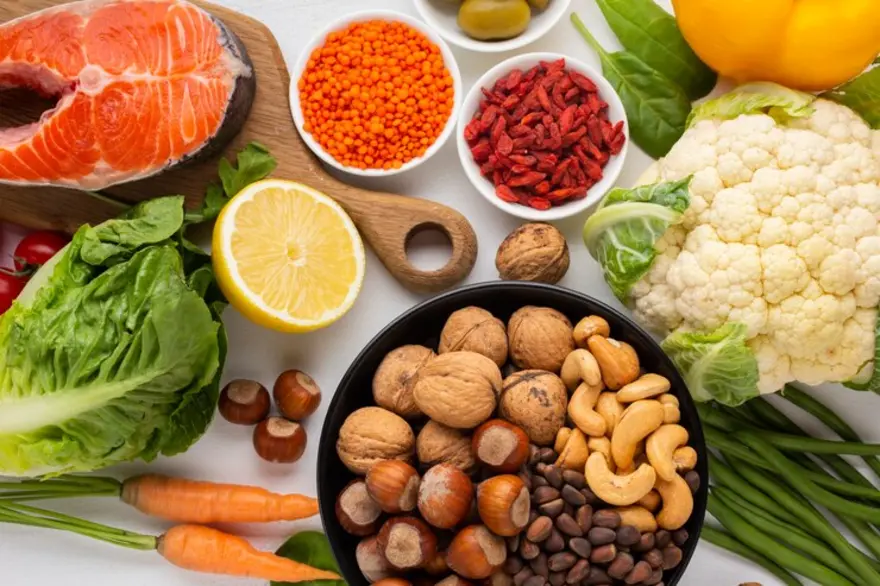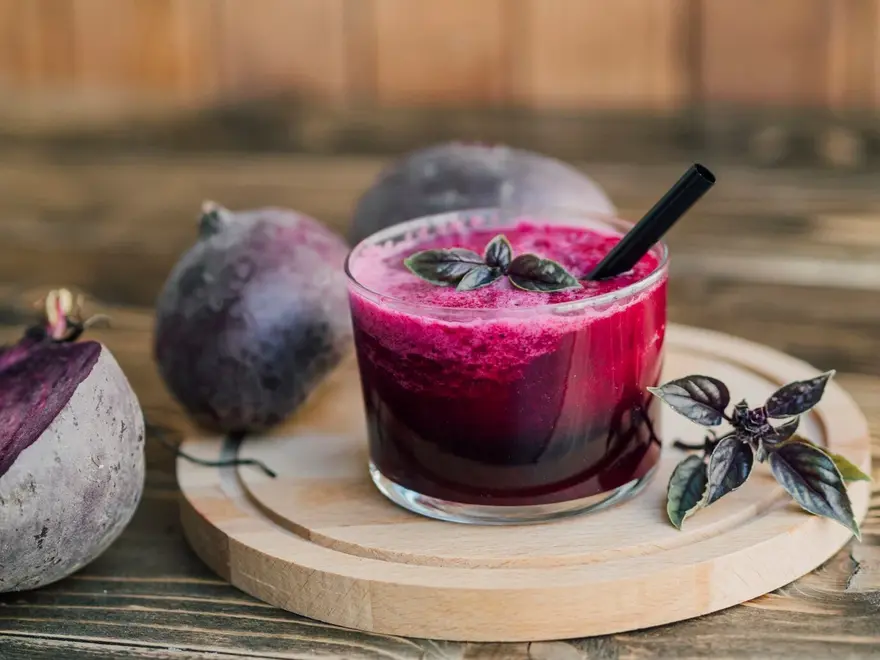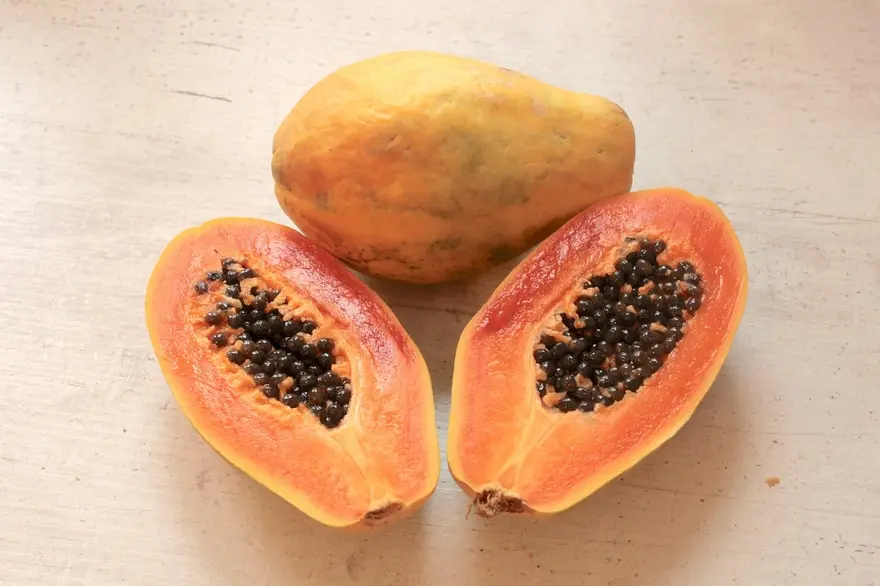Preventive Healthcare
Top 13 Estrogen-Rich Foods You Should Add To Your Diet
51994 Views
0

Introduction:
Estrogen is a hormone essential for women’s sexual and reproductive health. It also regulates the menstrual cycle, bone density, brain function, and cardiovascular system. However, estrogen levels can vary due to age, menopause, stress, medication, or environmental factors. Low estrogen can cause hot flashes, night sweats, vaginal dryness, mood swings, low libido, and osteoporosis.
How to increase estrogen naturally? By eating foods that have phytoestrogens. These are plant compounds that act like estrogen in the body. Let’s find out how phytoestrogens affect your health, which foods are high in estrogen and whether phytoestrogens are safe or harmful.
How do phytoestrogens affect your health?
Phytoestrogens are plant compounds that act like estrogen in the body.
Health Benefits Of Phytoestrogens:
- Relieving menopausal symptoms: They may reduce hot flashes, night sweats, and vaginal dryness in women with low estrogen.
- Preventing osteoporosis: They may protect bone health and density in postmenopausal women.
- Lowering heart disease risk: They may improve cholesterol, blood vessel function, and inflammation.
- Reducing certain cancer risks: They may modulate hormones, inhibit tumours, induce cell death, and prevent DNA damage.
Foods high in estrogen
There are different types of phytoestrogens, such as lignans, isoflavones, coumestans, and stilbenes. Fruits, vegetables, cereals, legumes, nuts, seeds, and herbs are some examples of plant foods that increase estrogen in males and females. Here are some of the most common foods high in estrogen and contain the necessary vitamins to increase estrogen levels:
- Flaxseeds: Flaxseeds are a great estrogen-rich food for menopause and are the richest source of lignans, which are phytoestrogens that have been shown to reduce hot flashes, improve vaginal health, and lower the risk of breast cancer.
Flaxseeds also contain omega-3 fatty acids, fibre, and antioxidants, which are beneficial for your overall health. You can have a handful of flaxseeds every day as is or add ground flaxseeds to your smoothies, oatmeal, salads, desserts or baked goods.
- Edamame: Edamame is a type of young soybean that is popular in Asian cuisine. Edamame is a rich source of protein, fibre, vitamins, minerals, and antioxidants. It may offer health benefits for cholesterol, blood sugar, blood pressure, and breast cancer.
Edamame is high in vitamin K and folate, both of which are needed for blood clotting and DNA synthesis. It also contains phytoestrogens, which are plant components that can act in the body like estrogen. Edamame is best enjoyed raw straight out of the pods or blanched in salty water. You can also add edamame to dishes for extra crunch.
- Soybeans and soy products: Soybeans and soy products, such as tofu, tempeh, edamame, soy milk, and soy yoghurt, are high in isoflavones, which are phytoestrogens that have estrogenic and antiestrogenic effects.
Isoflavones may help relieve menopausal symptoms, prevent osteoporosis, lower cholesterol levels, and reduce the risk of breast and prostate cancer. However, some people may be allergic or sensitive to soy, so it is advisable to consume soy in moderation and choose organic and non-GMO soy products. Soy milk is a great option to consume soybean or you can make soups, salads, smoothies, snacks and pancakes with it.
- Sesame seeds: Sesame seeds are a great food high in estrogen as well as calcium, magnesium, iron, zinc, and vitamin E. Sesame seeds may help improve bone health, lower blood pressure, and prevent oxidative stress.
You can sprinkle sesame seeds on your salads, stir-fries, soups, or desserts, or use sesame oil or tahini (sesame paste) for cooking or dressing. Eating sesame seeds on a regular basis has been found to increase estrogen activity in postmenopausal women. Sprinkle sesame seeds on top of desserts, bread, desserts or salads.
- Berries: Berries, such as strawberries, raspberries, cranberries, blueberries and mulberries are rich in resveratrol, which is a type of stilbene that has phytoestrogenic properties. Resveratrol may help protect the brain, heart, and blood vessels, as well as prevent inflammation and cancer.
Berries are also low in calories and high in antioxidants, fibre, and vitamin C. You can enjoy berries fresh or frozen, or add them to your yoghurt, cereal, and desserts like ice creams or smoothies.
- Peaches: Peaches are fruits which are high in phytoestrogens that have been found to inhibit the growth of breast cancer cells. Peaches also contain vitamin A, vitamin C, potassium, and fibre, which are good for your skin, immune system, and digestion. You can eat peaches fresh or dried, or make them into jams, pies, or salads.
- Garlic: Garlic is a common spice that adds flavour to many dishes. It also has a long history of use as a natural remedy for various health conditions.
Garlic contains phytoestrogens, which may help decrease bone loss caused by estrogen deficiencies. Research suggests that eating garlic regularly in moderate amounts can help increase your estrogen levels in the blood. You can add garlic while cooking savoury dishes and even make dips and sauces with it.
- Alfalfa sprouts: They are a good source of vitamin K and include a variety of other minerals such as vitamin C, copper, manganese, and folate. Alfalfa sprouts are estrogen-rich foods that are high in vitamins, including vitamin K and phytoestrogens. Regular intake of alfalfa sprouts has the benefit of preserving ideal levels of estrogen.
- Wheat Bran: A lot of dietary fibres are found in wheat bran. It also has many plant-based hormones (mainly lignan) in high amounts. So, eating foods made with wheat bran can help you raise your estrogen levels in the blood. More research is needed to fully understand the effect of wheat bran on circulating estrogen concentrations in humans. You can add wheat bran to oatmeal, stew, soup, casserole or even bread fish with it.
- Tofu: Tofu is popular in vegan diets and is another food high in estrogen. It is made from coagulated soy milk. Tofu is packed with plant proteins with a high amount of isoflavones. Making it a part of your regular meal may increase estrogen levels naturally. You can make many dishes like tofu salad, tofu sandwiches and tofu curries to enjoy its benefits.
- Cruciferous vegetables: Cruciferous vegetables, such as broccoli, cauliflower, cabbage, kale, and Brussels sprouts, contain indole-3-carbinol, which is a compound that can modulate estrogen metabolism and prevent estrogen-related cancers.
Broccoli and Brussels sprouts are rich in secoisolariciresinol and coumestrol, both phytoestrogens and have been found to exhibit estrogenic activity.
Cruciferous vegetables also contain glucosinolates, which are sulfur-containing compounds that have anti-inflammatory, antibacterial, and anticancer effects. You can eat these vegetables raw, cooked, or fermented, or add them to your soups, salads, wraps, pizza, pasta, burgers or casseroles.
- Dried fruits: Dried fruits, such as dates, prunes, apricots, and figs, are foods high in estrogen, especially lignans and coumestans. Dried fruits also provide natural sugars, fibre, iron, and antioxidants, which can boost your energy, digestion, and immunity. You can snack on dried fruits, or add them to your granola, trail mix, desserts or baked goods.
- Nuts: Pistachios, walnuts, peanuts, and almonds are high in phytoestrogens, particularly lignans and resveratrol. Resveratrol is a phytoestrogen with anti-ageing and anti-cancer properties. Nuts may also contain beneficial lipids, protein, and minerals. Consumption of a handful of nuts every day is recommended by health experts. You can have raw nuts as it is or add them to your smoothies, granola mix, desserts, breads and even savoury dishes like curries, soups and pasta.
Are phytoestrogens dangerous?
Phytoestrogens are safe to consume in general. The safety of phytoestrogens depends on many factors, such as the type, amount, and source of phytoestrogens, as well as the individual’s age, gender, hormone levels, and medical history.
Phytoestrogens are generally considered safe and beneficial for most people, especially for women who have low estrogen levels due to menopause or other reasons. However, phytoestrogens may not be suitable for everyone, and some people may need to be cautious or avoid them altogether. Some of the possible risks or side effects of phytoestrogens are:
- Hormonal imbalance: Phytoestrogens may interfere with the normal function of estrogen in the body, and cause hormonal imbalance or disruption. This may affect the menstrual cycle, fertility, breast development, or sexual function. Phytoestrogens may also interact with hormone replacement therapy or birth control pills, and alter their effectiveness or safety.
- Thyroid problems: Phytoestrogens may affect the thyroid gland, which regulates the metabolism and growth of the body. Phytoestrogens may inhibit the absorption of iodine, which is essential for thyroid hormone production, or interfere with the activity of thyroid hormones. This may lead to hypothyroidism, which is a condition characterized by low thyroid function and symptoms such as fatigue, weight gain, depression, and hair loss.
- Allergic reactions. Some people may be allergic or intolerant to certain foods that contain phytoestrogens, such as soy, nuts, or seeds. This may cause symptoms such as hives, itching, swelling, nausea, vomiting, diarrhoea, or anaphylaxis.
Many studies have shown that eating plant-based hormones can have many health benefits and protective effects. it is important to consult your doctor before increasing your intake of estrogen-rich foods, especially if you have any medical conditions, or allergies, or are taking any medications. You should also monitor your symptoms, adjust your intake accordingly, and avoid consuming excessive amounts of phytoestrogens.
Conclusion
Now that you know how to increase estrogen naturally in females and males, consume foods high in estrogen. If they are ineffective, therapies like Hormone Replacement Therapy may be beneficial.
It is advisable to eat a balanced and varied diet that includes moderate amounts of phytoestrogen-rich foods.
Get your Estrogen level checks done at Metropolis Labs to maintain a healthier life.























 WhatsApp
WhatsApp